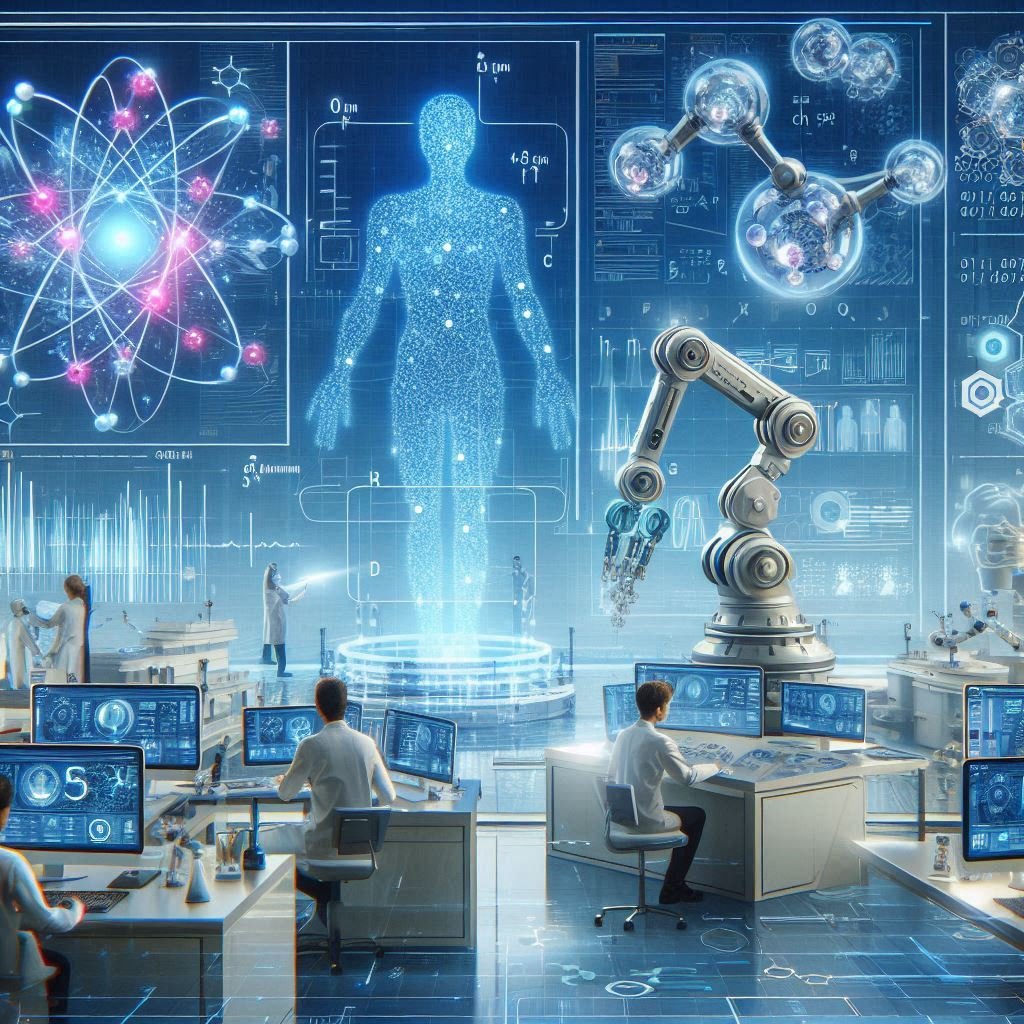By leveraging advanced algorithms and machine learning techniques, AI is accelerating the pace of scientific discoveries, enabling researchers to solve complex problems faster and more efficiently than ever before.
AI systems can now analyze vast datasets, identify patterns, and generate hypotheses that might take humans years to uncover. This accelerated pace is particularly evident in fields such as biology, chemistry, and materials science, where AI is playing a crucial role in drug discovery, protein folding, and the development of new materials.
Proteins are essential molecules in living organisms, and understanding their structures is vital for various applications, including drug development and disease treatment. Traditionally, determining protein structures has been a time-consuming and expensive process.
AI is also transforming the drug discovery process. Developing new drugs is a lengthy and costly endeavor, often taking over a decade and billions of dollars to bring a single drug to market.
AI-powered platforms can significantly reduce this time and cost by rapidly screening vast libraries of compounds, predicting their interactions with target proteins, and identifying potential candidates for further testing.
By simulating the behavior of materials at the atomic level, AI can predict how different combinations of elements will perform, enabling the creation of innovative materials for various applications, including electronics, energy storage, and construction. This ability to rapidly design and test new materials is accelerating the development of next-generation technologies and solutions.
AI is not only advancing our understanding of the natural world but also playing a critical role in addressing global challenges such as climate change. Climate models are complex and require immense computational power to simulate accurately.
AI is also being used to optimize renewable energy systems, improve energy efficiency, and develop sustainable technologies that reduce our carbon footprint.
While the potential of AI-powered scientific discovery is immense, it is essential to address the ethical considerations and challenges associated with its use.
AI systems rely on large datasets, and ensuring the privacy and security of this data is paramount. Additionally, the algorithms used in AI models must be transparent and explainable to ensure that their predictions and recommendations can be trusted.
There is also the risk of bias in AI models, which can lead to inaccurate or unfair outcomes. Researchers and policymakers must work together to establish guidelines and standards that promote the responsible and ethical use of AI in scientific research.
The future of AI-powered scientific discovery looks incredibly promising. As AI technology continues to advance, we can expect even more significant breakthroughs in various scientific disciplines. AI’s ability to analyze complex data, generate new hypotheses, and accelerate the discovery process will continue to drive innovation and improve our understanding of the world.
Collaborative efforts between AI researchers and domain experts will be crucial in unlocking the full potential of AI and addressing the most pressing challenges facing humanity.
AI-powered scientific discovery is revolutionizing the way we conduct research and make discoveries. From predicting protein structures to accelerating drug discovery and designing new materials, AI is enabling researchers to achieve breakthroughs at an unprecedented pace. While there are challenges and ethical considerations to address, the potential benefits of AI in scientific research are immense. By harnessing the power of AI, we can unlock new knowledge, develop innovative solutions, and tackle some of the world’s most pressing problems.



